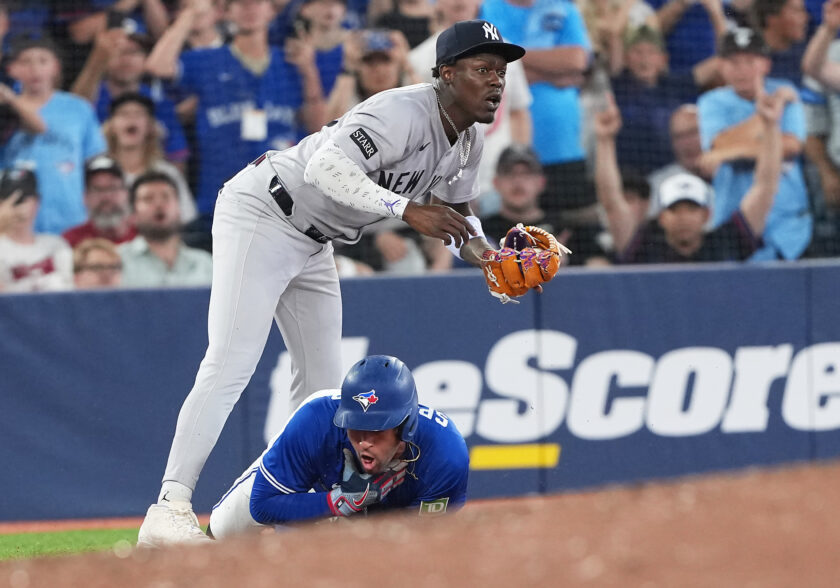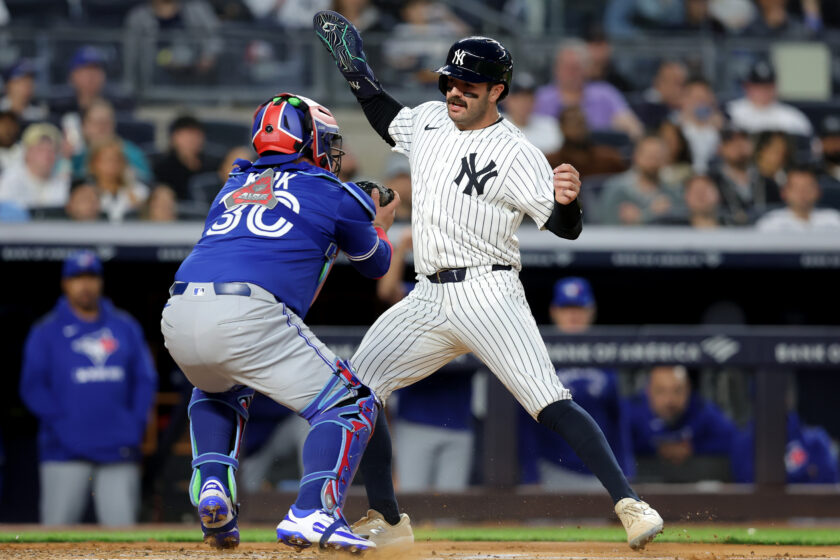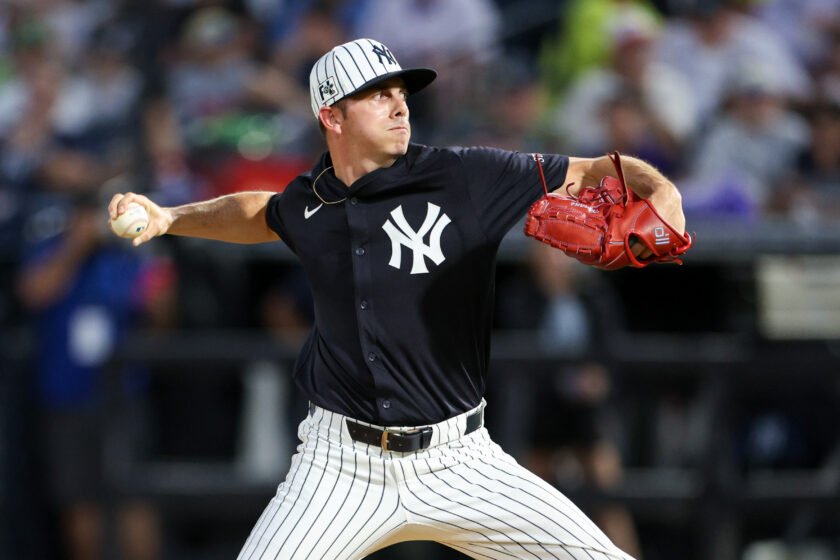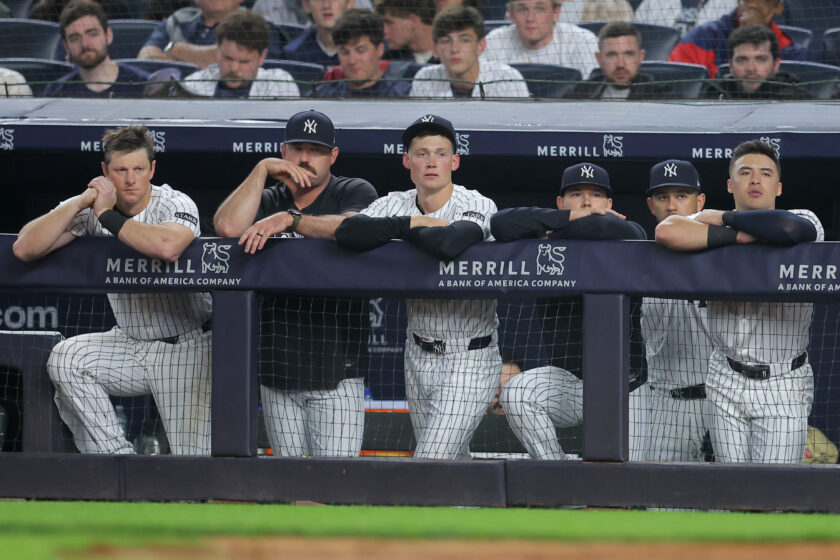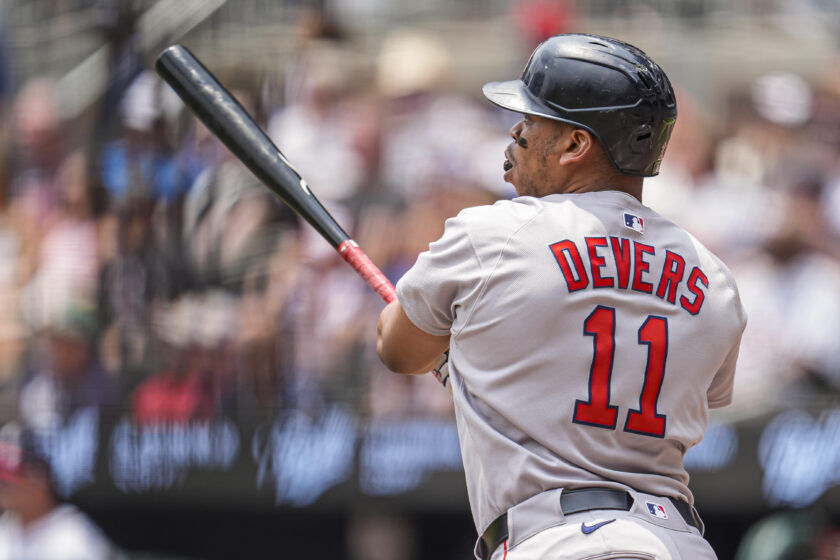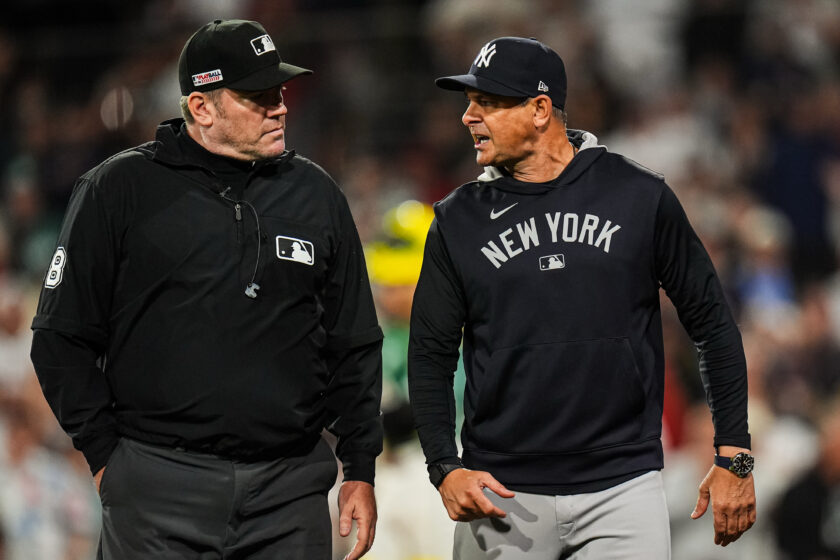New York Yankees Must Change Otherworldly Perception Of Aaron Judge

Aaron Judge took baseball by storm with a tremendous first half, but those three months of stardom are now working against him and the New York Yankees.
Don’t get me wrong: Aaron Judge deserved every last second of attention and air time he received at the midsummer classic.
His first half was flat-out historic — something baseball may never see again out of a rookie — and his distinctive image as a 6-foot-7, 282-pound beast who sports a non-preferable jersey number (99) automatically springboards the additional praise when he succeeds.
Any first-year player that slashes .329/.441/.691 with 30 homers and 66 RBIs in a half should garner that much intrigue — playing in the New York spotlight no less.
[sc name=”Yankees Link Related” link=”elitesportsny.com/2017/08/03/new-york-yankees-joe-girardi-now-never/” text=”For Joe Girardi, It’s Now Or Never” ]However, it is that nonstop buzz behind each and every at-bat that is ultimately serving as the 25-year-old’s Achilles heel, hurting the New York Yankees in the process.
Let’s face facts without senselessly pointing at the Home Run Derby, a competition the phenom could have won in his sleep.
Aaron Judge is not a .330 hitter with the enormous discipline everyone witnessed in the first half, nor is he a guy who will boast a .426 BABIP for his entire career. In fact, the only time he cracked .300 in the minors was back in his A-ball days.
In other words, as the Yankees move forward, and inevitably build a team capable of winning several championships over the span of a decade, Judge cannot be perceived as the focal point of a contending lineup. Simply put, the No. 3 spot in the order was a more than a serviceable temporary solution to aid a relevant 2017 team.
Sooner rather than later, it is imperative that a new centerpiece surfaces (i.e., Bryce Harper, Manny Machado — 2019).
The right fielder should play an integral role in a championship offense one day, but maintaining the perception of him anchoring that lineup could jeopardize New York’s future plans.
[sc name=”Yankees Center” ]Are these power numbers sustainable? Of course. Just look at the guy. He straight-up misses pitches and manages to launch them over 400 feet.
His recent slump, resulting in the major dip in batting average, is a matter of leveling out, and his strikeout numbers (138 over 103 games this season) will remain an issue.
As for the mental game, which can make or break hitters, slumps will drag out when the guy swings for the fences — as evidenced by his numbers since the all-star break (.164/.313/.343 slash with four homers in 19 games).[sc name=”Earn Your Stripes Podcast Right” ]
Staying up the middle and to right-center field was a major key to his first half success, coupled with an easy swing and patient approach. Judge let the ball get deep and it traveled simply because of his sheer size and explosion through the zone.
The longer he presses, the more likely these results will become the norm.
There is no rule stating that a brilliant first half mandates consistent reps in the middle of a lineup and immediate recognition as the face of a franchise.
Sure, the organization and its fans were spoiled by his first 84 games of 2017 and will continue to rightfully put him on a pedestal, but it is time for the fan base, along with Joe Girardi and the front office, to slightly alter their respective interpretations of Aaron Judge.
[sc name=”Yankees Links” ]
Not only will it help the Yankees down the stretch of 2017, in 2018 and beyond, but it will help a typically obdurate fan base avoid massive dissatisfaction.
[sc name=”Yankees Link Next” link=”elitesportsny.com/2017/08/03/new-york-yankees-4-key-players-need-turn-things-around/” text=”4 Key Yankees Who Need To Turn Things Around” ]
